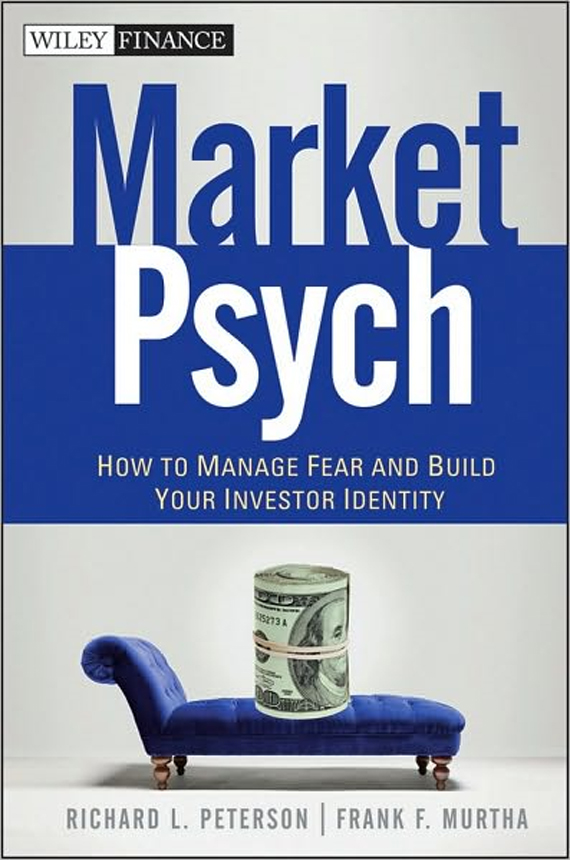It’s not easy to break into the hedge fund industry.
As today’s guest on Tradestreaming Radio (enrolled in a joint JD/MBA program at Harvard) can attest, even great credentials aren’t enough to land you your first job.
I will respect our guest’s request for anonymity (he’s still got to fight for a job when he graduates). But this show is jam-packed as he shares
- what works (and doesn’t) to land a hedge fund internship
- how you can land a buy-side job without experience on Wall Street
- how you can standout from other applicants
- how hard work can help you penetrate the old-boys network
- how to make sure research gives you an unfair advantage
Listen to the FULL program
About our guest
Today’s guest on Tradestreaming Radio is enrolled in Harvard’s joint JD/MBA program and recently completed his first summer internship in the hedge fund industry.
Read the transcript
Transcript provided by Speechpad
You can find this episode and all others on my website, Tradestreaming.com. We have transcripts of most programs there, as well as a lot of other information. Please come back to the website. Sign up for our weekly newsletter. We’ll be glad to have you over there. You can also find the archives of this program and subscribe to this program on iTunes. While you’re there, please feel free to leave a rating or ranking and let other people know the value you’re finding in Tradestreaming Radio. We’re glad you joined us. We’re happy we’re growing. We look forward to producing more value-oriented and value-packed information for you in the future. Again, this is Zack Miller, and this is Tradestreaming Radio. I’ll turn it over to our interviewee.
Interviewee: I was brought up in Africa and grew up not knowing anything about the stock market. In fact, the stock exchange in Lusaka trades about 10 to 15 trades a day.
Zack: Wow.
Interviewee: Really, I knew nothing about the stock market. I came to college here. I went to MIT and studied economics, and came out of there and still didn’t know anything about the stock market.
Zack: Why did you study economics?
Interviewee: Why did I study economics? I thought it would be more applicable. I did study electrical engineering, computer science, and economics. Economics was the one that I enjoyed the most. I think it was the most applicable to what I wanted to do. I knew I wanted to go into business. I knew I was going to go and get an MBA, so the choice was really whether to do a Bachelor’s in management or a Bachelor’s in economics. The choice for me was if I’m going to get an MBA, the management degree will be fairly redundant. I thought I would do economics. It’s more analytical, more theoretical, but still gives you some of the broader exposure to knowing how the world works and how the economy works. That was a fascinating course for me.
Zack: Okay. You graduated, and now what?
Interviewee: I graduated in 2008. Went to work for McKinsey for two years. Actually, before I graduated, I applied to the JD/MBA program at Harvard. I applied to both the law school and the business school.
Zack: You’re a classic underachiever, aren’t you?
Interviewee: I was fortunate to get into both of them right out of college. I was going to go straight through and then decided that I would be better off coming to HBS with work experience. I had an offer from McKinsey. I’d worked there the previous summer and decided to take up the offer and went to work for McKinsey for a couple of years.
Zack: Based where?
Interviewee: I was based in Chicago. I took Chicago because I figured out of college you can do something and it’s not a one-way street because you always have that recourse back to business school. Doing something that you would not normally do. Most people go to McKinsey to do strategy, to do corporate finance. Most of the guys that you see in business schools on the east coast were in some of the bigger offices of Boston, New York, London, and San Francisco. I decided to go to Chicago because I figured I would never have the opportunity to work with the kind of clients the Chicago office serves. I would have been out in the manufacturing field. I was out in Eastern Ohio for a while. I was looking at supply chain management, looking at opening and closing plants, improvement in plant service levels, all kinds of operational issues that typical McKinsey studies don’t encompass. That was a good experience for me. I came out of that.
During my final, I guess, six months at McKinsey, I started to get into investment management. I started to work for their private equity practice where they basically helped clients value companies that they wanted to buy. I worked for a private equity company that was looking at acquiring a dental chain. We went through and valued the company, understood the dynamics, what the industry was going at, what the prices were, what the valuations were, what customers were thinking about it. This was, to me, a way to put it all together. You put in the analytics, the broader business management, the economics. You have to keep the broader macroeconomics in mind. Intellectually, it was a phenomenal fit for me. It was a chance for me to apply all the skills that I’d developed over time and have my skin in the game, because at the end of the day you’re making a decision that is either right or wrong. There’s no gray line. You rise and fall on your own merits, which I find intellectually very appealing.
I came into HBS and had no idea. I knew I wanted to do investment management. I started investing in the stock market and was having a lot of fun. When I came to HBS I knew I wanted to do investment management and the process turned out to be much harder than I thought it would be. I think people underestimate how difficult it is for people with non- traditional backgrounds. The industry, despite the fact that the industry is known for taking risks and has people in there that basically are out every day doing something that others aren’t doing, that’s the only way to make money in the industry, when it comes to hiring they are surprisingly standardized.
Zack: Tell me a little bit more about that. They’re looking for people that have already been there and done it?
Interviewee: Yes. If I think about just the hierarchy of people of who would be the most appealing candidates for post-MBA hedge fund hires, I would think right at the top of the list are people that worked at hedge funds before business school. People either right out of college, went and worked at hedge funds, and spent two or three years at a hedge fund, or spent two in banking and then a year or two at hedge funds. Those would be at the top of the list. The second guys would probably be those guys that work in mutual funds, followed by people who worked in banking and then private equity. They have some investment experience, not necessarily in public markets, but private markets. People who did any kind of finance after that. People who did venture capital, people who did plain out banking, trading, those would be people that would be more appealing to them. Then, at the bottom of the list comes those like me without any work experience, without any financial work experience, without experience in banking and investment management in general.
Zack: Can you just ballpark how many of the people like you on a percentage basis found their jobs in the hedge fund world?
Interviewee: I would say almost none.
Zack: Okay. It’s really an anomaly.
Interviewee: Yeah, I would say that, especially since you asked about hedge funds, almost none. Mutual funds are more open to this, but hedge funds are not unfortunately. It’s a struggle. Maybe it’s a function of a relatively low year, but maybe in 2006 it would have been different. Actually, in fact, in 2006 it would have been different. In 2010, 2011, it’s not. It’s not that great.
The guys that work at hedge funds almost always ended up in hedge funds. The guys who worked at private equity had, I would say, a 50-50 shot if they wanted to go into hedge funds, doing hedge funds or other stuff. For everybody else, it was extremely challenging.
Zack: How far along the process did you notice and say, “Hey, I’m sort of like a fish out of water here,” or, “I have to do something different to stand out against all these other people that have a different background from me”?
Interviewee: I think I recognized it very early. I acted on it very late. I think that’s a typical mistake that people make. You get carried away in your first year of business school where there’s so much happening. We’re all running on all four cylinders. You’re busy with everything and it takes a while for you to step back and realize, “If I do what everybody else is doing, I won’t end up with a job this summer in what I want to be doing.”
Zack: Can you give us an example of something you did to stand out?
Interviewee: Basically, what happened was… Well, you start school in September. October and November, December recruiters are not on campus. Until November recruiters are not on campus. They’re not allowed on campus because they want the first years to settle in and get to know the campus. Then in November, the recruiters start coming in. They start giving information sessions. When you go to these information sessions, it’s the first time you realize that really when you attend a recruiting presentation and talk to them afterwards they will say hello to you and talk to you, but you can see that they’re not interested in you. They want to get to know the guys that worked at hedge funds before and they want to get to know guys that worked at private equity before. They don’t want the guy from McKinsey who may as well just be trying out for the summer. Even if you’re the guy that really is interested in investment management, the benefit of the doubt is not given.
Zack: Wow. They’re that transparent about their apathy towards it?
Interviewee: Yeah. Hedge funds are known for no-nonsense. They won’t hide their feelings from you. When they tell you, “Look, it will be hard for you to get a job. We will really have to know that you’re interested in this, that you’re good at this, that you’re passionate about this, and interesting in making it a career,” they mean it. The challenge is trying to convince them that, one, you can do the job, and, two, that you’re passionate about doing the job. I think, frankly, the second one’s harder than the first one with a non-traditional background.
Zack: Can we talk about how you addressed both those issues?
Interviewee: Yeah. The first step is to realize that those that come on campus, there is no way you can stand out in that pool. They have just a pick of people they can choose from with perfect backgrounds. Forget people that come on campus for a non- traditional background. It’s very unlikely. I happened to find one of my jobs on campus, but it was a rare exception.
Now, I worked at two funds. The other fund was entirely network searched. What I mean by network searched, it basically involved just knocking on doors of people that you think you’d love to work with. That means doing a lot of research beforehand. This is not sending out emails, blindly, saying, “Hey, I’m a first- year student. I’m really interested in working for you. I’m very passionate about investing. Give me a job.” That won’t cut it. You have to know what is in their portfolio beforehand. What is their background? What is some stuff that they would be interested in? If this is a tech company, do you have any interesting technology stocks? Can you talk to them about it? Can you talk to them about some of their bigger stocks?
Zack: Are you actually pitching them at an introductory level? You’re sending them a thesis on a stock?
Interviewee: Not necessarily. Sometimes you’re just sending a letter saying, “Can I meet with you?” Then when you go talk with them, you could be pitching stocks. You almost always, definitely, will be pitching stocks. The first thing they’ll ask for is, “Tell me some stocks that you’re interested in.” It’s a way for them to get good ideas. It’ll actually make the conversation more interesting for them, especially if you can pitch a stock that they’re interested in.
When you pitch a stock, you have to engage with them. This is not about showing that you’ve done a lot of work. This about showing that you’re passionate about it. People that take in a 25-page PowerPoint presentation and want to run through them, that’s not going to work. When you go in there to pitch a stock, you really have 30 seconds to grab their attention and you want to capture their attention in 30 seconds.
Zack: You spend a lot of time understanding the stocks that are already populated in their portfolios before you pitched?
Interviewee: You never want to pitch a stock that’s on their portfolio, because they know it much better than you do and they don’t want to hear about their own stocks. You’re pitching your stock that’s not on their portfolio, but you do want to understand what stocks are in their portfolio so you can have a conversation with them about it. If they understand that you’ve done research, not just about investing but about the positions that they have, they’ll be that much more interested and start talking to you.
If you go to a big hedge fund manager that has maybe 60 positions in their portfolio, if you understood their top five positions very, very well and you want to talk to them and had intelligent questions to ask about them, they realize that this guy has spent 50 hours trying to understand my portfolio, trying to understand my style of investing, and they’ll show some interest. It won’t guarantee a job. It won’t even guarantee an interview, but it will guarantee an audience.
Zack: Okay. Great advice.
Interviewee: That’s one thing you can do. Just go and reach out. The second thing you can do is make yourself valuable to these guys. The way you make yourself valuable to them is, you’re going out there, willing to say that you’re going to work for free. That’s the ultimate weapon that you have as a student when you’re doing this over the summer. Nobody else can do this, nobody else. People who are working full-time, in-transition jobs can go out there and say, “I’ll work for free. Give me an opportunity.” You can say that. You can go in and say, “Look, I have 10 weeks. I just want to learn. I just want to learn from you, the things that you do, the investing style that you do very much appeals to me. I’m willing to work for free. Give me the opportunity and I’ll show you that I can add value. Look, at the end of the day, you’re not making any commitment about full-time hiring.”
Zack: Does that lower the bar too low in the sense that you’re not necessarily framing your value in the right way? They’re going to expect to pay you, obviously, when you get hired for real, but you’re just trying to make it as easy as possible, all the hurdles down, just say, “Hey, here’s what I know.”
Interviewee: You’re trying to remove the barriers to hiring you. You want this to be a riskless proposition for them, as riskless as possible. Even with that, a lot of funds will turn you away because they’ll say, “Look, we understand that you want to work for free, but we can’t. There are insurance issues, issues on liability. We can’t have anybody working for free.” Frankly, I think there are some legal free wage issues, to have someone work for free in a for-profit environment.
I don’t think anybody will actually hire you on a completely no- fee basis. They might put you on an incentive where if your stock works they’ll pay you at the end. I think the thought of it makes them look at you differently. You’d be surprised at how many people don’t do this. You’d think a lot of students would go out and say, “Hey, look, I can work for you for free.” Even those students that are really passionate about this will think that they’re short selling themselves if they say that so they won’t say that. It’s a weapon that you have as a student and you employ it. You employ it carefully. You don’t want to sound like you’re desperate. You want to sound like you’re very keen about this.
Zack: How many interviews did you have? What was your hit rate in terms of landing the jobs? How many did you have to meet with before?
Interviewee: Well, for on-campus search, I applied to every hedge fund that came on campus and almost every mutual fund. I had interviews at almost all of the mutual funds, well, maybe about 70% of the mutual funds. I got interviewed at about 5% of the hedge funds. The 5% of the hedge funds that I got interviews at were strictly because I used . . . HBS will give you some points you can basically put in to get an interview regardless of whether you’re not selected initially and the points acted as a way for people that are really interested in getting interviewed to get an interview. I used all my points for two interviews, basically, two companies. I happened to get interviews at both companies.
Zack: The internship you landed, was it with one of those two?
Interviewee: It was with one of those two and the other one I went through the second round.
Zack: Okay. What was your feeling about the rigor comparably between the hedge fund industry and the mutual fund industry? Did you get job offers at the mutual funds?
Interviewee: I did, yeah. I had job offers at every mutual fund I interviewed for.
Zack: Okay. Can you characterize that?
Interviewee: I haven’t worked in the mutual funds, so it’s hard for me to assess what the rigor was. My sense was that the biggest difference is this whole idea of specialized versus not specialized. In a typical mutual fund, especially if you go in for the summer, they give you a set of four stock positions, or three stock positions that you spend all summer analyzing.
Zack: Wow.
Interviewee: You can’t go short on it. You’re not using any sophisticated financial tools that you have. Your learning, especially at the beginning of the year, I felt, was a little bit more limited in that sense. Now you have a lot more resources, a lot less pressure, a better lifestyle, and you probably can ride out the market volatility a little better just because your investor base isn’t worried, isn’t overly paranoid. The challenge is, I think, your learning is limited. Frankly, I think, when there’s so much trouble in the world, I don’t know if there’s value in having the ability to go short. I think the short positions become more and more interesting.
Zack: What were your responsibilities at the hedge fund? Did you actually pull the trigger on positions or was it more from an analytical role?
Interviewee: I’m sorry. Can you say that again?
Zack: What was the role? What were your job responsibilities at the hedge fund?
Interviewee: A typical analyst role. You’re in the full process from idea generation to recommendation, all the way through analysis.
Zack: You’re feeding those through the portfolio manager or are you feeding those directly to a trader?
Interviewee: Through the portfolio manager. The portfolio manager always has the last say on a position.
Zack: Okay. How does that feedback work, that process work? Compared to the mutual fund industry, you’ve got four positions and you’re sort of stuck with those. Here, you’re given free rein. Is there a feedback loop or feedback mechanism to help you get better during that short time?
Interviewee: A lot of hedge funds, luckily the ones I worked in, were very good at providing feedback. A lot of hedge funds don’t. The way it works, at the very beginning of your career, you’re given a certain number of positions to look at. Usually, they give you positions, they come back to us in a week or two weeks, and let us know what you think. You spend a week or two analyzing it, talking to people, doing your primary research, understanding what [inaudible 20:23], and then you go back and make a recommendation. The portfolio manager will look at the recommendation, can ask you to go back and do more work, or can say, “This sounds good. Let me look at it.” He comes back to you and says, “What about this? What about that?” There will be a couple of questions. Then they’ll make a determination on whether or not they should invest in it.
You have feedback in that if your recommendations are not acted upon then something about your pitch or about your analysis wasn’t convincing enough. You have some indirect feedback. Some hedge funds will give you very direct feedback and say, “Look, I think this is what you should have done with the stock. This is the way you should have approached it. These are some of the things you should have done.” Then you go back and revise it, work on it, and get better at it.
Zack: Did they accept any of your recommendations?
Interviewee: Yeah, they did. They did. We invested in a couple of different stocks that I recommended over the summer.
Zack: How did they turn out?
Interviewee: Well, the market’s been bad. They’ve performed in line with the market, but the market’s been just terrible the last few months. We’ll see. These are positions where you hold them for a year to two years. They’re not short-term investments.
Zack: Any tips you could give also that you saw maybe some of your peers were using to land interviews?
Interviewee: Yeah, I think the guys that did really well went to firms that don’t come on campus. I think that’s a good strategy in general, to go to firms that don’t come on campus.
Zack: Why, because it’s less competitive?
Interviewee: Yeah, there’s less competition. They’re not exposed to the same competitive dynamics. They have five people coming to them and you can stand out in five people. That’s a lot better than firms that come to campus and have 45 people approaching them. Sometimes the gems, the jewels of the hedge fund world aren’t always the most popular, well-known names. Sometimes they are. Sometimes they aren’t. Reaching out, not just looking at the top 10 tiger funds, but going to [inaudible 22:22] or Bloomberg, and saying, “Who are the big hedge funds out there? Who are the funds with the kind of strategies I want? Who are the people that I would love to work with?” Approaching them and showing that you care about their investing style, their culture, and the person that runs the fund can be very helpful. Most importantly, I think, starting early is very important here. People that started in September had a definite edge over those starting in January.
Then there’s also finally, I think there’s an aspect of this which is how far you can go. I was prepared to go until the summer to find my job. Because this was my first experience in investment management, I didn’t want to do something because I was worried about getting a job. I was prepared to go until the summer. I was prepared to turn down all my mutual fund offers, even if I had a smaller hedge fund that I wasn’t interested in, I would have turned it down to find the hedge funds I wanted to work with.
Zack: That’s pretty gutsy.
Interviewee: You’d be surprised at how many things open up in the summer. I got an email. I’m in the HBS Investment Club and I got an email distributed to the members on the last week of May, this was the week after finals, from a very, very prominent hedge fund in New York that wanted to hire. They were ready to hire. They were ready for someone to start next week. I would have bet you that the people that got turned down from the big name hedge funds that had no shot in there would have had some chance at this place. People that had job offers at that time, people who had taken investment banking offers, even though they were passionate about investment management because they didn’t want to hold out would have been much better off if they had held out.
Now it’s a risk you’re taking, obviously. You go part of the summer unemployed and that’s a big risk obviously, especially if you’re doing just the MBA Program where you only have one summer. If you are really passionate about this, you should be holding out. You don’t have to hold out necessarily until the end of May. All of your friends will have offers in January. If you can hold out until the end of March, end of April, more and more competition withers away during that time. The people who can hold out right until the end will have a better chance of doing well.
Zack: Did you prepare for your interviews? Did you use some other external resources to prep, either books or courses or something?
Interviewee: No. I prepared for my interviews on my own. I didn’t use any external resources. I think the best way to prepare is to start early. Again, if you’re in the market, and if you love investing, you’re automatically prepared for your interviews.
Zack: Would you credit participation in an investment club also as helping to prepare that?
Interviewee: Yeah, the investment club is a great resource at HBS. What it allows you to do is basically see different people and present different ideas. There are investment ideas presented every other week, so you know how other people are pitching. You know what people are looking at, how they’re thinking about their stock positions. You also have the opportunity to have great speakers on campus. We had Seth Klarman come in. We had Julian Robertson come in. We had David Abrams come in. We had David Ott come in from Viking. We’ve had just a range of phenomenal speakers come in last year. All these people are presenting some new angle to the investing business. They’re also incredibly successful. You learn a lot from them. Obviously that helps you as an investor and helps you think about what works and what doesn’t.
More importantly, I think what the investment club does is put you with a peer group that you know you’re competing with, but at the same time you can work with. Some of the guys that you’re going to be competing with for jobs today, you might be working with tomorrow in hedge funds or you might be starting hedge funds together with them. Being able to develop that network early on with like-minded people is very important, I think.
Zack: That’s great. So interesting. Just as an aside, you mentioned before that it’s not just the quality of your research, but it’s also how you pitch and being able to communicate the pitch. I always feel like that’s sort of one of these secret or at least unexplored pieces of the whole investment process, being able to pitch. It’s interesting that you were able to pick that up so quickly.
Interviewee: Yeah, I think the pitch is the critical component, but I think it’s hard to prepare for it.
Zack: I think it comes with experience, right? It’s sort of battle tested.
Interviewee: Yeah, I think at the first interview everyone’s going to do badly. You’re talking too long. You’re pitching stocks. I think by the time you get to your sixth interview, you kind of figure things out. You’re like, “Okay, this guy seems like you need to capture his attention very quickly, otherwise you’re going to lose him. He’s always looking at his BlackBerry while he’s interviewing, so you better get it right out and talk about ideas first. Don’t talk too long about yourself. Don’t talk about things that he wouldn’t be interested in.” Then you start to amend your style toward people that are interviewing you.
Now, sometimes what happens is that you just resonate with somebody very well and that develops your confidence. The next interview you go into, that helps. It’s a process that takes a long time. I think the more practice you get, the better, again. The only way to be sure about this is just practice with your friends, practice with people, go to career services and do mock interviews. The tougher your interviews are, the more you learn from them. Don’t hesitate to really challenge and push yourself in those first interviews which are usually the most challenging. If you have someone out there that is very aggressive against you, you’d be surprised how much you learn from that process. Go through that and how to handle that person. The next interview with a nice guy who’s just interested in hearing your pitches will be a lot easier.
Zack: That’s great advice. I have one last question before I let you go. Given your experiences and everything you’ve been through, are you going to look for a full-time job when you graduate in the hedge fund world?
Interviewee: Absolutely.
Zack: Okay. It was a good experience?
Interviewee: Yeah, it was a great experience. It’s a very good industry. It’s not for everybody, but it’s a very good industry. When I was at McKinsey, I worked in a bunch of different industries, served clients in a bunch of different areas. I think this is by far the most intellectually honest industry that you’ll find. There’s no BS. No one is trying to suck up with each other. There’s no politics. Hedge funds tend to be very non-hierarchical. You are out there and you are putting money where you think the best returns are. At the end of the day, you’re right or wrong based on the decisions you make not based on anything else.
Zack: Ultimate meritocracy, right?
Interviewee: There is something very raw and intellectually honest about the industry that is so refreshing. People that are in it that are being successful in it you’ll notice are some of the most wonderful people that you’ll meet. I think the most successful investors aren’t doing it for money. They’re doing it because money is a way for them to keep track of it. Really, they do it because they love it. There aren’t a lot of industries where you’ll see so many people wake up every morning and go to work and think, “Today is going to be a great day because I love what I do.” It’s so refreshing to see that, when you get up every day and you think that.
Zack: That’s so inspiring. I think Ray Dalio of Bridgewater recently said that in an investment letter, that he really is truly blessed to be able to wake up and enjoy what he does every day with no concern for the money.
Interviewee: So many people do that and so many people say that in this industry. That’s what’s great about it.
Zack: Well, you’ve got to be rich to be happy, I guess. I’m just kidding. Thank you so much for your time. This was really insightful.
Interviewee: No problem. If I can help, let me know.










 I find this compelling because it’s one of the first hedge funds that’s designed (so publicly, at least) to trade on changes in social media sentiment.
I find this compelling because it’s one of the first hedge funds that’s designed (so publicly, at least) to trade on changes in social media sentiment.






